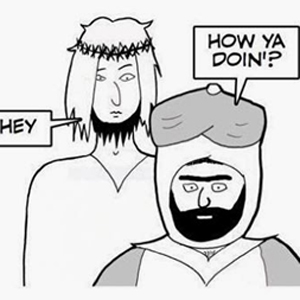The incredible fact about the European Union is that it began with the signing of an international agreement primarily between France and Germany over coalmining, in 1951. Six years after topping a dozen centuries of near constant belligerence by conducting the two most destructive wars in history, two countries simply decided not to fight again. The European Coal and Steel Community (coal and steel being the two resources, no less, that had sparked so much of the warfare in the first place) was formed, the evil spell was broken and war between Europe's 'Great Powers' is now about as likely as war between Pakistan and the Pitcairn Islands.
The extraordinary success of the EU in banishing war from western Europe informs Timothy Garton Ash's examination of the fragile state of 'the West', and for a book that delineates the current schism between Europe and America (a gap with a long history, but given shattering force by the war in Iraq) Garton Ash is remarkably optimistic. He believes that the gulf opened between the two poles of the democratic world reveals an opportunity to kickstart the West into an engine for spreading freedom (Garton Ash is not at all embarrassed by a word which can feel suspiciously loaded). Like the project to make conflict between ancient European enemies impossible, Garton Ash believes that the spread of liberal democracy and the liberty it inscribes can be achieved through the actions of the peoples living in the privileged and wealthy fraction of the planet called the First World.
This proposal has a time bomb attached to it. If relations between the West and the rest deteriorate, and the rich minority fail to pull the wretched majority out of their poverty and misery, any statement of even the most cautious optimism can look like ludicrous naivety.
Garton Ash is aware of this and throughout his series of essays he holds to the French writer Romain Rolland's advice to practise "pessimism of the intellect, but optimism of the will": hoping for the best but planning for the worst. But pessimism and its adjunct apathy are Garton Ash's main targets. At a time when more people than ever before are living under democratic systems, he says, it is ironic that so many of them are becoming hopelessly estranged from the democratic process.
Garton Ash conducts us on a tour of the worldstate we are in and describes the forces sculpting the present international scene the hangover from the Cold War, the realisation of the fragility of the environment and the terrifying emergence of Islamist militancy (Garton Ash honourably emphasises the task of making Europe an entirely welcoming and comfortable place for its Muslim population). To meet these challenges he urges a strong Europe, but not one committed to opposing America at every opportunity, which is entirely reasonable. But it is the gulf of perception between what seems reasonable to people like me and what seems possible to people in power that fuels that pessimism of the intellect. We are taken to the 2001 World Economic Forum in Davos, where the three richest people in the world were calculated to have assets in excess of those enjoyed by the 600 million inhabitants of the world's least developed countries. The likeable John Thornton, then president of Goldman Sachs, musing on the accumulation of such stupendous amounts of personal wealth, said he felt "almost a kind of embarrassment". The reader joins Garton Ash in marvelling at that 'almost'.
This is an immensely ambitious book and Garton Ash is such a confident writer, with such a clear vision of where he's taking us, that we follow him through the trials tormenting our largely unfree world without ever feeling that the scale of the undertaking is beyond the author's ability.
The arguments for a Europe which is neither an emasculated province of America nor a truculent opponent of everything that emanates from Washington are made with great power and clarity. In fact, Garton Ash has a bracing respect for Europe and an encouraging belief in its future. He wants Britain to be a part of it and understands that, far from abolishing the ancient independence of European states, the EU highlights the adamantine divisions that distinguish the Great Powers. Divisions that made themselves powerfully felt over Iraq.
Unfortunately, the success of the UK Independence Party raises doubts about Garton Ash's hopes for Britain playing a central role in Europe.

